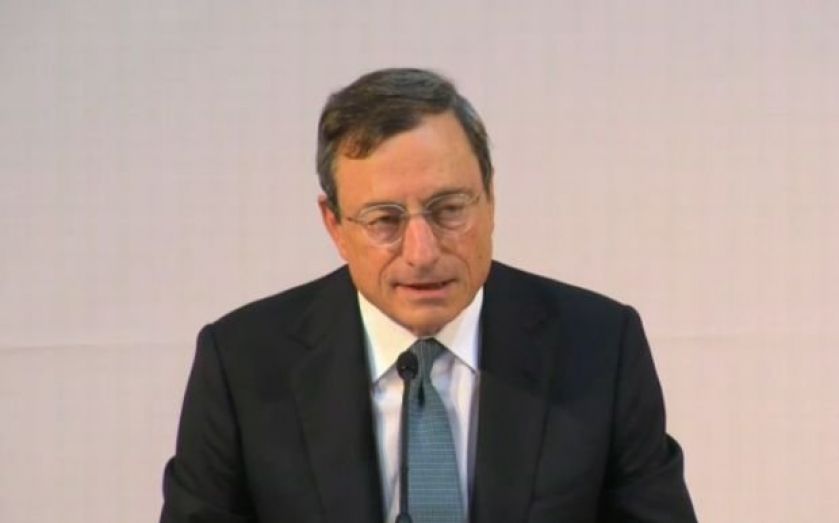Mario Draghi: ECB to start buying covered bonds this month

Mario Draghi, the president of the ECB, has said the Bank will be prepared to take on below investment grade asset-backed securities (to BBB-), opening the door to Greek and Cypriot banks.
The central bank will start buying covered bonds and asset-backed securities this autumn, starting with the bond programme in mid-October. The programme will last two years.
The inclusive nature of the ABSPP would come with prudence, the governor indicated. Countries must have programmes with the EU, he said, emphasising that this was not negotiable.
The bank said in order to be eligible (among other criteria) "senior tranches must:"
- be eligible under the collateral framework for Eurosystem credit operations as it may be modified over time.
- have a second-best credit assessment of at least CQS3, currently equivalent to an ECAI rating of BBB-/Baa3/BBBl.
Speaking in Naples today, Draghi said the new measures, which will come alongside "targeted longer-term refinancing operations" would have "a sizeable impact on our balance sheet".
He added: "The new measures will support specific market segments that play a key role in the financing of the economy. They will thereby further enhance the functioning of the monetary policy transmission mechanism, facilitate credit provision to the broad economy and generate positive spillovers to other markets."
The ECB's balance sheet is currently at around €2 trillion, with €700bn of that being ABS.
The expansion would increase that to around €3 trillion. Should the new measure be insufficient, the only option left to the ECB may well be full-blown quantitative easing, or the purchase of sovereign bonds.
Analysts at CEBR said:
The implemented measures have yet to strengthen demand and many think the ABS programme will not be enough. Its only remaining option is full quantitative easing through sovereign bond-buying – something that will be resisted by the Bundesbank for as long as possible.
Inflation, Draghi said, was the main target (just below two per cent), and the size of the ECB's balance sheet was just an instrument in the pursuit of the mandate. The president said he expected inflation (CPI) to remain low in the short term, rising during 2015 and 2016.
In a move that may anger Berlin, Draghi added that countries with "fiscal space", such as Germany, should use it and invest to stimulate the economy.